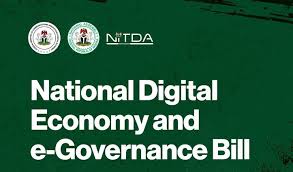The consultant overseeing the sensitisation of the E-Governance Bill 2024, Christiana Ossai, has stated that the bill, once passed into law, would position Nigeria as a digital economic leader in Africa.
Speaking during a stakeholders’ engagement in Uyo on Thursday, Ossai highlighted that despite technological advances, Nigeria’s digital economy continues to face significant challenges.
These include fragmented infrastructure, insufficient cybersecurity measures, and low trust in e-services, which hinder the country’s digital growth.
The E-Governance Bill aims to promote the growth of Nigeria’s digital economy and governance by enhancing the certainty of digital transactions and improving digital service delivery.
“Nigeria lags behind countries with a robust e-governance framework that empowers citizens and protects consumer data. Without intervention, Nigeria risks losing economic opportunities in an increasingly digital world,” Ossai warned.
She further noted that the bill would accelerate Nigeria’s digital economic growth, addressing critical issues like fragmented digital infrastructure and limited digital access.
It also aims to bolster cybersecurity, ensure data privacy, and rebuild public trust in e-services.
“The bill’s goal is to position Nigeria as a leader in Africa’s digital economy by fostering a secure, inclusive digital environment,” Ossai added.
“It prioritises streamlined, transparent digital governance, reducing bureaucracy, and facilitating better citizen engagement.”
The bill’s objectives also include economic transformation, modernisation of public services, and ensuring digital access for all Nigerians.
Earlier, Akwa Ibom State Commissioner for Science and Digital Economy, Prof. Imoh Moffat, urged participants to contribute openly and provide constructive feedback to strengthen any weaknesses in the bill.
In November 2024, the Federal Government, through the Ministry of Communications, Innovation, and Digital Economy, consulted and engaged critical stakeholders in Anambra on the Digital Economy and e-Governance Bill, with plans to make the bill a legislative order.
